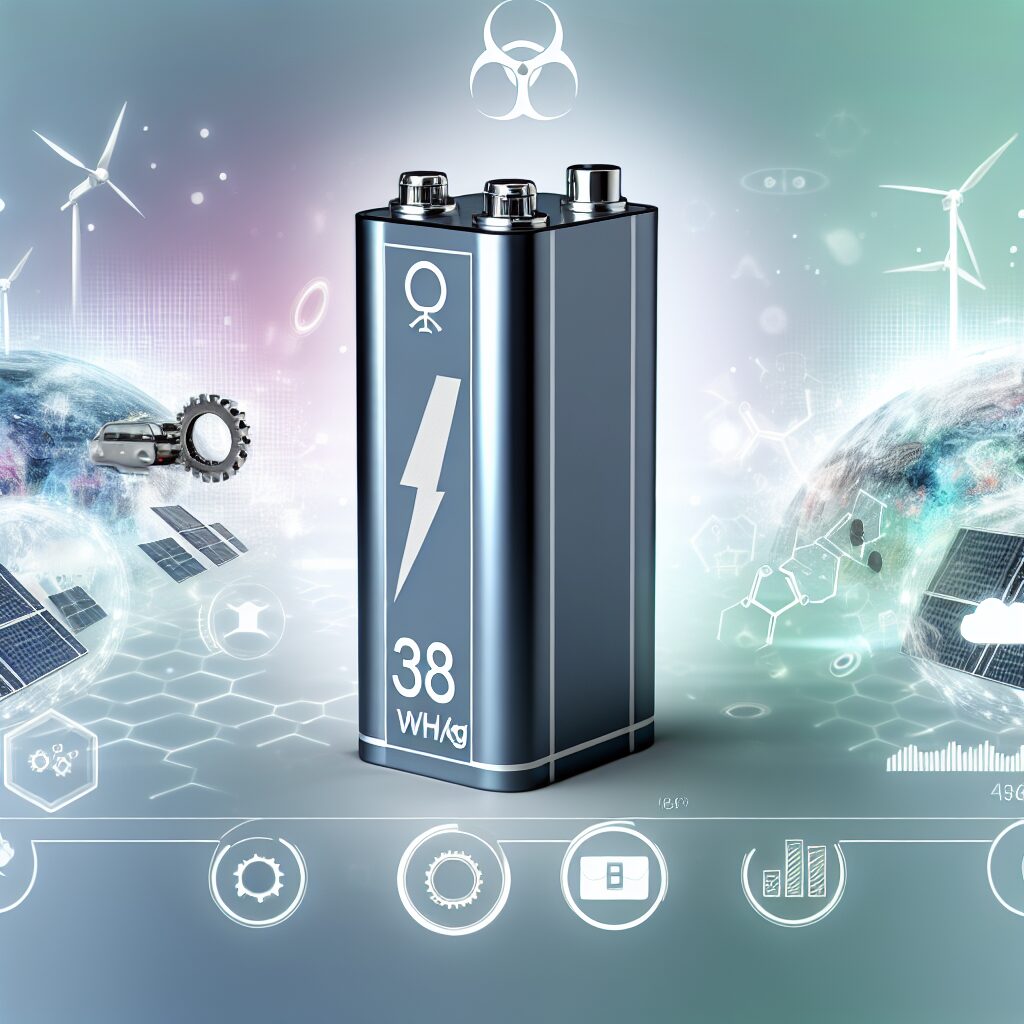Eleqtrion Achieves 380 Wh/kg Energy Density with Aluminium-ion Battery
In the rapidly advancing world of energy storage, achieving higher energy densities remains one of the key priorities for researchers and companies alike. Enter Eleqtrion, a pioneering firm in the field of battery technology, which has recently made waves with its groundbreaking aluminium-ion battery. Boasting an impressive energy density of 380 Wh/kg, this innovation is set to revolutionize the energy storage landscape.
What Makes Aluminium-ion Batteries Different?
While lithium-ion batteries have dominated the energy storage market for years, they come with a host of challenges, including resource scarcity, cost, and safety concerns. Aluminium-ion batteries, on the other hand, offer several advantages. Aluminium is both more abundant and cheaper than lithium, making these next-generation batteries a promising alternative. Additionally, aluminium-ion batteries are known for their enhanced safety features, thanks to their non-flammable nature.
The Significance of 380 Wh/kg
Energy density, measured in watt-hours per kilogram (Wh/kg), is a critical metric for batteries. It indicates how much energy a battery can store relative to its weight. Eleqtrion’s achievement of 380 Wh/kg is a significant leap forward. For context, conventional lithium-ion batteries typically range from 150 to 250 Wh/kg. This means Eleqtrion’s aluminium-ion battery could offer up to a 50% increase in energy density, translating to more power for longer periods without adding additional weight.
Implications Across Industries
With a higher energy density, Eleqtrion’s aluminium-ion batteries open up new possibilities across various industries:
– Electric Mobility: The range anxiety associated with mobility could become a thing of the past. A higher energy density means sccoters and e-bikes can travel further on a single charge, bringing electric mobility closer to mainstream adoption.
– Consumer Electronics: Imagine smartphones, laptops, and tablets with significantly extended battery lives, reducing the constant need for recharging.
– Renewable Energy Storage: Efficiently storing renewable energy from sources like solar and wind is crucial for a sustainable future. Eleqtrion’s batteries could provide the necessary capacity and reliability for such applications.
Sustainability and Environmental Impact
Another compelling aspect of Eleqtrion’s aluminium-ion battery is its environmental sustainability. Aluminium is one of the most abundant elements in the Earth’s crust, reducing the environmental and ethical issues associated with mining rarer materials like lithium and cobalt. Furthermore, the recyclability of aluminium lends itself well to creating a more circular and eco-friendly battery lifecycle. By using more sustainable materials, Eleqtrion’s innovation contributes significantly to the reduction of the overall ecological footprint.
Technological Innovations Behind the Achievement
Reaching a 380 Wh/kg energy density didn’t happen overnight. Eleqtrion’s research and development team has been tirelessly working to overcome the technical hurdles associated with aluminium-ion batteries. Key developments include:
– Advanced Electrolyte Solutions: Optimizing the electrolyte to enhance conductivity and stability was crucial. Eleqtrion’s proprietary electrolyte formula minimized resistance and maximized energy storage.
– High-Purity Aluminium: Using high-purity aluminium as the anode material improved the battery’s performance and lifespan.
– Innovative Cathode Materials: The cathode material needed to complement the aluminium anode, creating a harmonious flow of ions to ensure effective energy storage and release.
Looking Ahead: The Future of Energy Storage
Eleqtrion’s breakthrough is just the beginning. As the company continues to refine its technology, we can anticipate even greater advancements in aluminium-ion batteries. Future research is likely to focus on further increasing energy density, enhancing charging speeds, and reducing production costs.
Potential Challenges
While the prospects are promising, it’s essential to acknowledge the challenges that still lie ahead. Scaling up production, ensuring long-term stability, and achieving cost-parity with existing lithium-ion batteries are hurdles that need to be navigated for broader adoption. Nevertheless, Eleqtrion’s current achievement lays a robust foundation for future innovations and commercial viability.
Conclusion: A New Era in Energy Storage
Eleqtrion’s achievement of a 380 Wh/kg energy density with aluminium-ion batteries marks a monumental step in energy storage technology. Offering higher energy densities, improved safety features, and significant environmental benefits, these batteries have the potential to significantly impact various sectors, from electric vehicles to renewable energy storage. As Eleqtrion continues to push the boundaries of what’s possible, the future of energy storage looks not only promising but also more sustainable.
Source
Eleqtrion’s Aluminium-ion Battery Energy Density Reaches 380 Wh/kg

